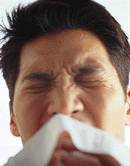
SATURDAY, March 27 (HealthDay News) — People who sneeze and wheeze all spring long may be making some common mistakes that make it difficult for them to keep their allergies under control, according to the American College of Allergy, Asthma and Immunology.
Before the allergy season kicks into high gear, consider these tips to prevent symptoms:
- Don’t assume you know exactly what you are allergic to. More than two-thirds of people who think their allergies only occur during the spring season actually have year-round allergies. An allergist can pinpoint the source of your allergic reaction and recommend the right treatment.
- Don’t buy over-the-counter medications that don’t alleviate allergy symptoms. Consult an allergist to determine which treatment options are best for you. Immunotherapy using nasal spray or shots may even cure allergies permanently.
- Don’t wait until symptoms start to take allergy medications. Before the spring allergy season starts, begin taking a medication that’s worked for you in the past.
- Take steps to avoid allergy triggers. Experts suggest that if you are allergic to pollen, keep your windows closed, take a shower after being outside and avoid going out in the middle of the day when pollen counts are highest.
- If raw or fresh fruits or other foods aggravate your allergy symptoms — making you sniffle and sneeze and your mouth, lips and throat get itchy — you may have oral allergy syndrome. This condition affects about one-third of seasonal allergy sufferers. While cooking or peeling these foods may help, it is wise to consult an allergist.
More information
The American Academy of Otolaryngology — Head and Neck Surgery has more about allergies and hay fever.

